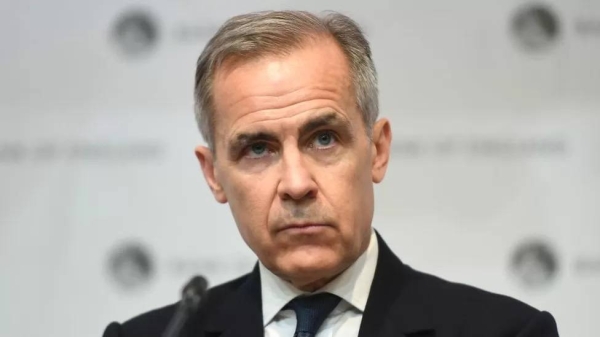
One of Britain’s largest trade unions has invited the governor of the Bank of England to work as a care worker for a day to witness how people cope on low pay.
The GMB, which represents about 500,000 full and part-time workers, said Andrew Bailey should see first hand the challenges of making ends meet for people struggling on below average earnings – many of them low-paid women working in the care sector – after the central bank governor called for wage restraint to limit the rise in inflation.
Bailey caused uproar last week when he suggested that workers should help curb inflation by refraining from making wage demands, on the same day the Bank of England announced the biggest fall in disposable income in three decades.
The central bank forecast that inflation, which increased to 5.4% in December, was on course to hit 7% in April while its latest estimates found that earnings were increasing by 4% to 4.5%.
Bailey said interest rates would need to rise further if wages increased in line with inflation, causing unemployment to rise and economic growth to slow.
“I’m not saying don’t give your staff a pay rise, this is about the size of it frankly. Show restraint,” Bailey said after the central bank’s monetary policy committee, which he chairs, increased the base interest rate from 0.25% to 0.5%.
Sharon Graham, the general secretary of Unite, said workers were not causing Britain’s cost of living crisis and should not be asked to pay for it. “Why is it that every time there is a crisis, rich men ask ordinary people to pay for it?” she said.
Bailey was paid £575,538, including pension, in his first year as the Bank’s governor from March 2020, more than 18 times the UK average for a full-time employee.
In the letter, GMB general secretary, Gary Smith, said Bailey should spend a day shadowing low-paid care workers to judge for himself how rising energy and food bills were affecting people on low incomes. “You do not appear to have called for restraint in price setting, or dividend payments,” he said.
Smith continued: “Andrew Bailey should spend a day shadowing the low-paid workers in the care sector upon whom ‘restraint’ has been imposed for too long.
“These are the predominately women workers at the frontline of the pandemic, who are putting their own lives at risk to care for some of the most vulnerable members of society.
“The majority of those workers earn pennies more than the national minimum wage. After working a shift, I would be interested to know whether those workers should show ‘restraint’ against the mounting cost of living crisis.
“I hope that Mr Bailey will be prepared to explain his reasoning to the people his apparent policy would affect.”












